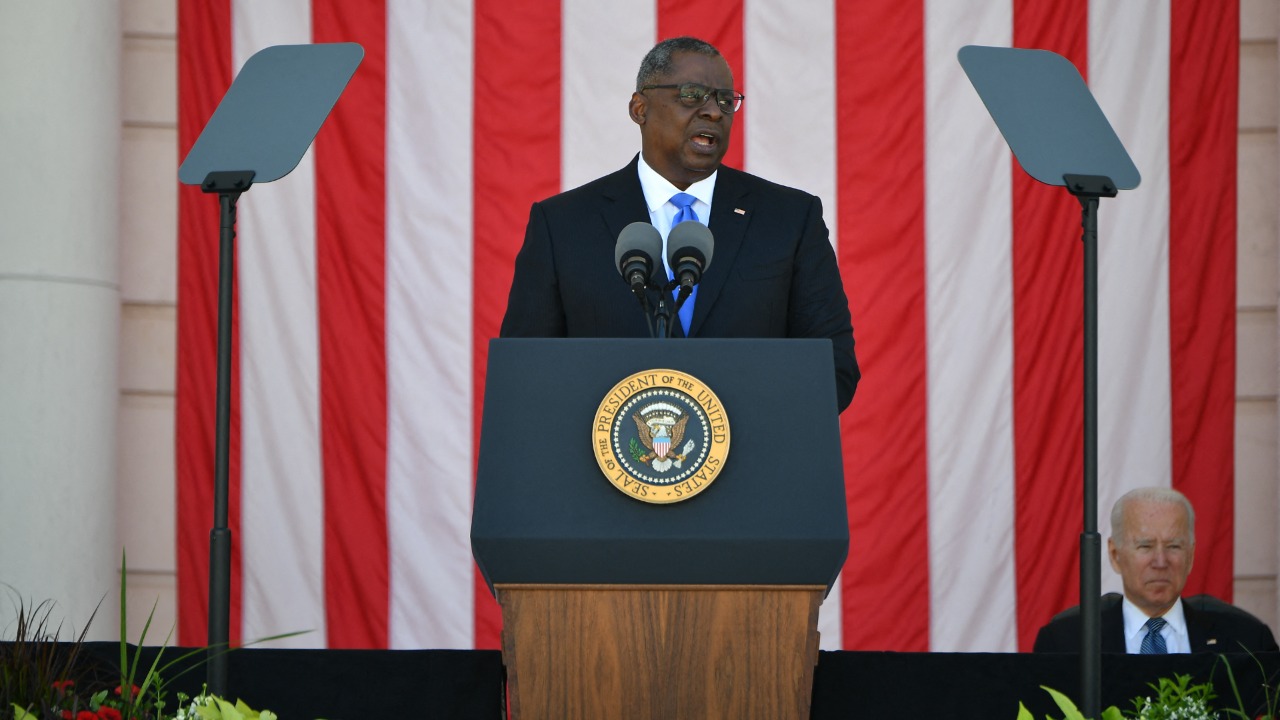US Defense Secretary to NATO: US ‘firmly committed' to defeat of ISIS
Secretary Lloyd Austin “affirmed that the United States remains firmly committed to defeating ISIS and supporting the Government of Iraq.”

WASHINGTON DC (Kurdistan 24) – US Secretary of Defense Lloyd Austin told a meeting of NATO Foreign and Defense ministers that the US remains determined to continue the fight against ISIS, even as it has also begun the process of withdrawing from Afghanistan.
Staying in Iraq—but leaving Afghanistan
NATO is engaged, along with the US, in both Iraq and Afghanistan. Thus, US intentions are of critical importance to the members of the Atlantic alliance. Austin pledged to coordinate with them, as Washington moves forward on its military plans.
The ministerial conference was held virtually on June 1, and in addressing the NATO ministers, Austin “affirmed that the United States remains firmly committed to defeating ISIS and supporting the Government of Iraq,” the Pentagon's read-out of Austin's remarks explained.
NATO Secretary General Jens Stoltenberg spoke similarly at a press briefing the day before the ministerial conference, as he affirmed the alliance's continued commitment to NATO's training mission in Iraq.
“We strongly believe that helping to train the Iraqi Security Forces, helping to build security institutions, is the best way we can prevent the return of ISIS,” Stoltenberg said, “and we are now scaling up the NATO training mission in Iraq.”
He also noted that NATO had a training mission in Kuwait, which began in early 2017. The current NATO training mission in Iraq began the following year.
The Pentagon read-out of Austin's remarks to the ministerial conference also stated that Austin “discussed the retrograde [i.e. withdrawal] in Afghanistan, pledging to support Afghanistan and work hand in hand with NATO,” as the US military mission “transitions to a civilian-led engagement.”
The Biden administration has set a deadline for withdrawing US forces from Afghanistan: Sept. 11, the 20th anniversary of the unprecedented assaults on New York and Washington.
Just a few months after those attacks—already in Dec. 2001—the George W. Bush administration believed that it had won that war, and it began to prepare for the war in Iraq.
Yet the Afghan war was not won, and it became, instead, America's longest war. The Biden administration does not believe it is worth fighting any more and wants to shift resources from the so-called “war on terror” in order to confront major rivals, above all China and Russia.
Ministerial Conference as Prelude to Summit Diplomacy
The explicit purpose of the NATO ministerial meeting was to prepare for a NATO summit that will be held in Brussels on June 14. President Joe Biden will be among the attendees—marking his first trip abroad as US president.
Thus, Austin's remarks to the NATO ministerial conference, in effect, made clear the position that Biden will take at the NATO summit, as well as at other meetings with world leaders both before and after that summit
There will be a G-7 summit in Britain between June 11 and 13 (the G-7 is a group of seven of the world's most industrialized countries: Canada, France, Germany, Italy, Japan, the UK, and the US, as well as the EU.) With the exception of Japan, all the G-7 countries are also NATO members.
On June 16, following the NATO summit, Biden will meet with Russian President Vladimir Putin in Geneva. He will also meet with Turkish President Recep Tayyip Erdogan on the sidelines of the NATO summit.
The US has serious disputes with both Russia and Turkey, and Biden has expressed his distaste for the leaders of both countries, calling Putin a “killer” and Erdogan an “autocrat,” as he also said that Washington should do more to support Turkey's democratic opposition.
From the US side, the fight against ISIS is unlikely to be a prominent issue in Biden's discussions with Putin and Erdogan.
However, from the Turkish side, it certainly will. In an interview with Turkish state broadcaster TRT World, on Tuesday, Erdogan complained about Biden.
He said that Turkey's relations with the US were undergoing strains that are unprecedented in recent times, attributing that to Biden personally. “We will ask why Turkey-US relations are going through such a tense period,” Erdogan said.
He complained about the Biden administration's recognition of the 1915 Armenian genocide, threatening, “Those who corner Turkey this way will lose an important friend.”
But even more central to Erdogan's concerns is the US partnership with the Kurdish-led Syrian Democratic Forces (SDF) in northeast Syria in the fight against ISIS.
Turkey views the Kurdish People's Protection Units (YPG) as the Syrian branch of the Kurdistan Workers' Party (PKK), which the US and European Union, as well as Turkey, consider a terrorist organization.
The US, however, strongly disagrees with Turkey's view of the YPG and sees it as a valuable partner in the fight against ISIS.
“If you are our ally, are you going to stand with us or are you going to stand with these terrorists?,” Erdogan told TRT World, as he explained what he would say to Biden.
Yet Erdogan is most unlikely to find a sympathetic ear on that score, when he meets the new US president two weeks from now.